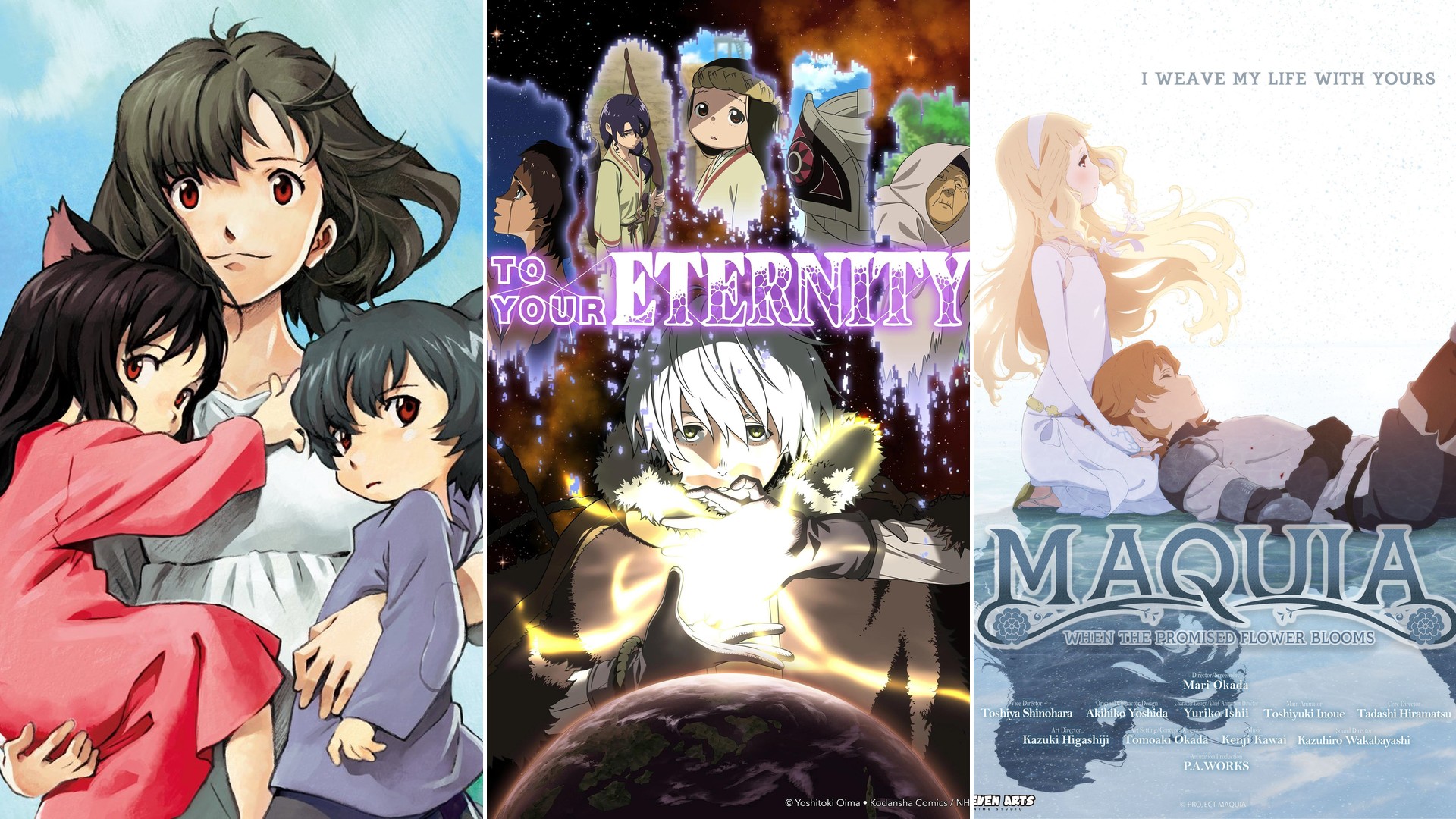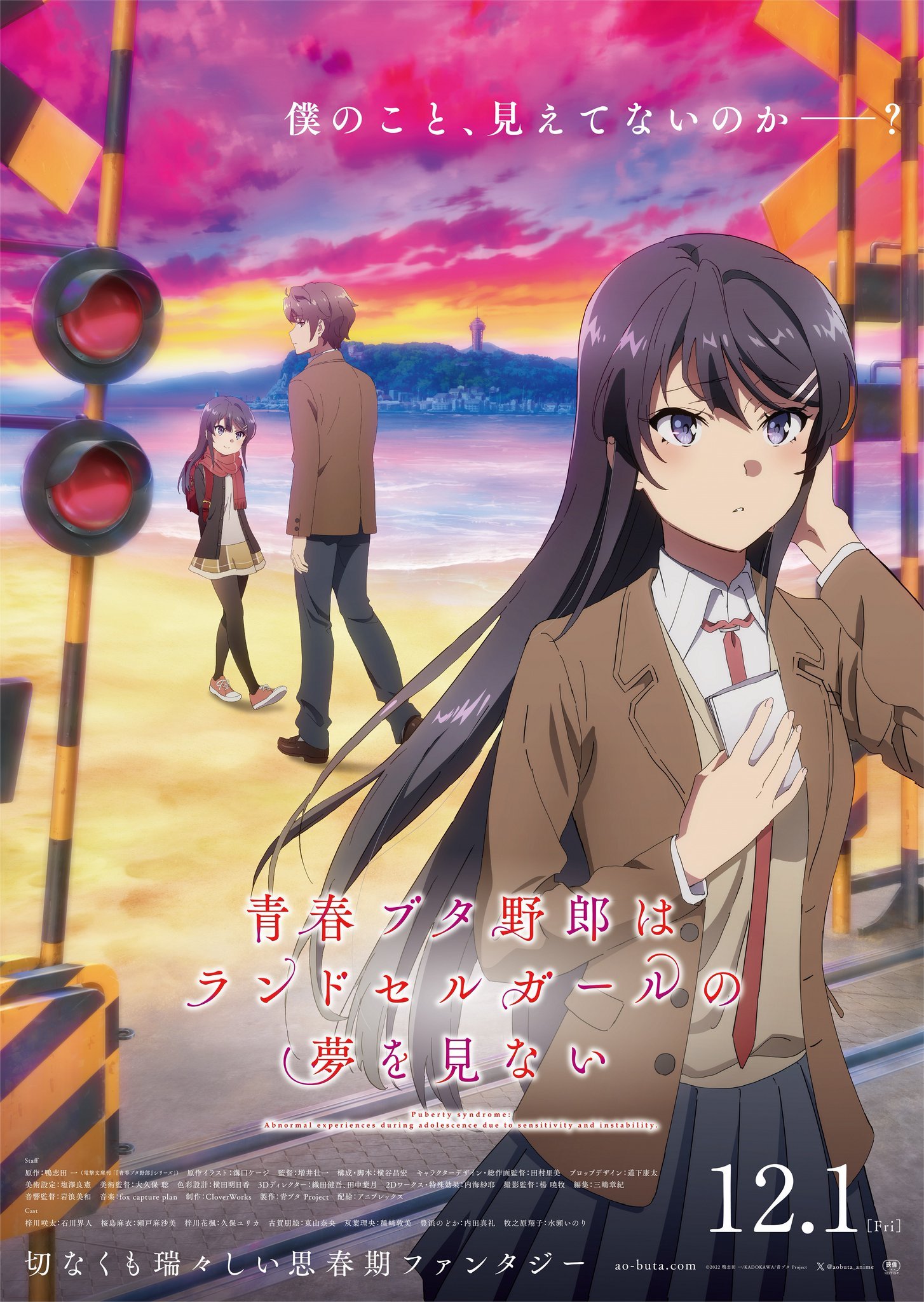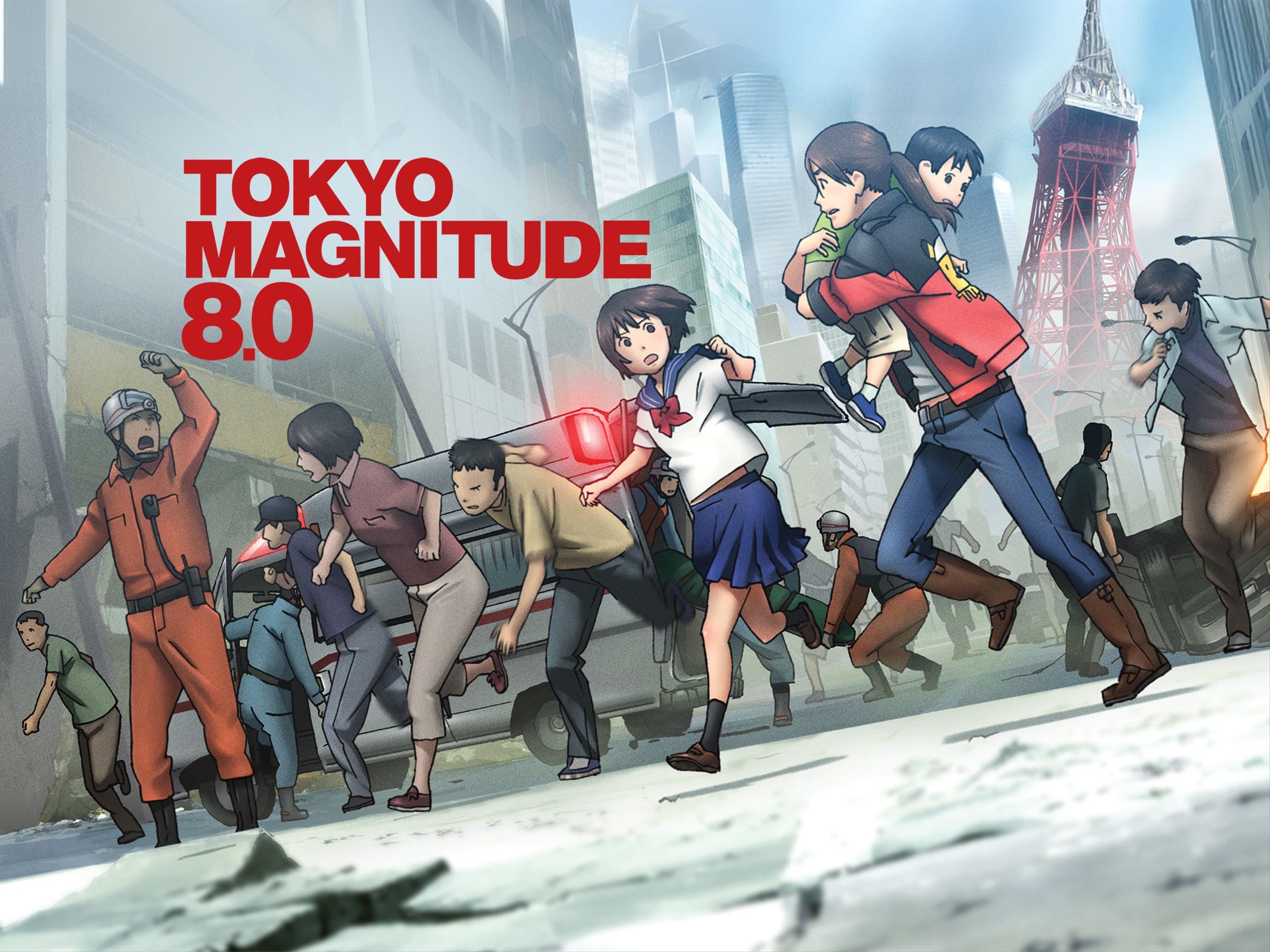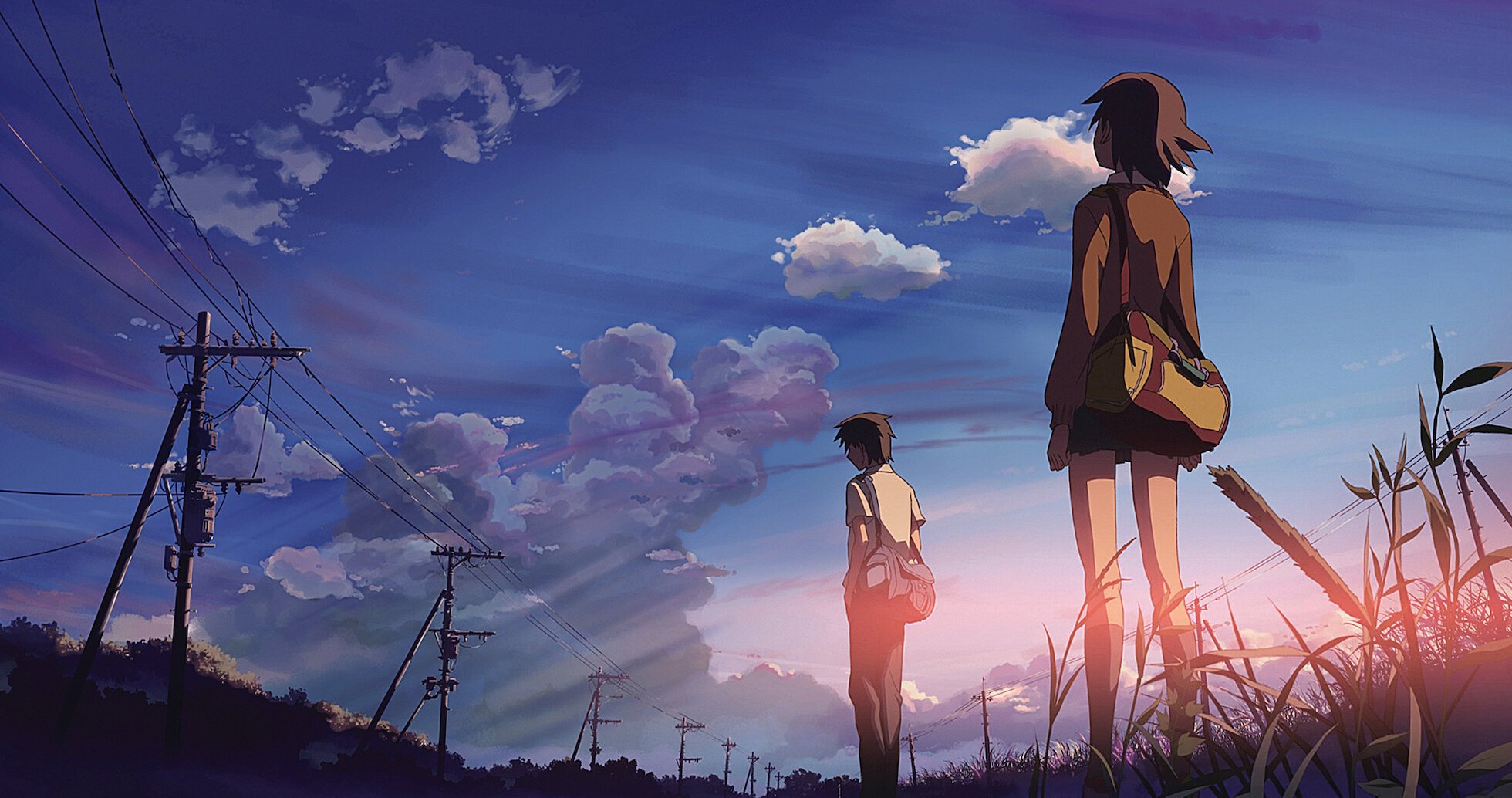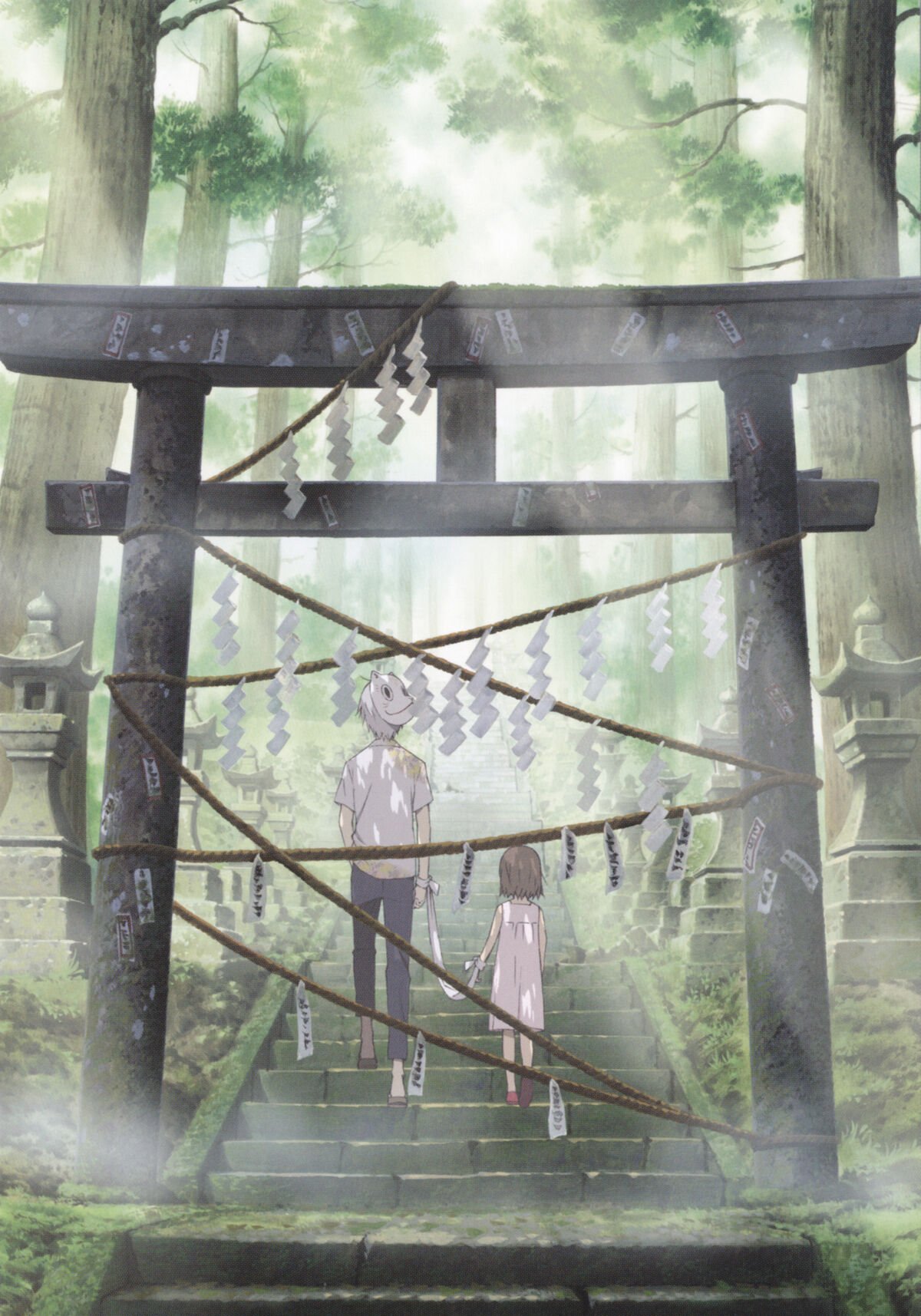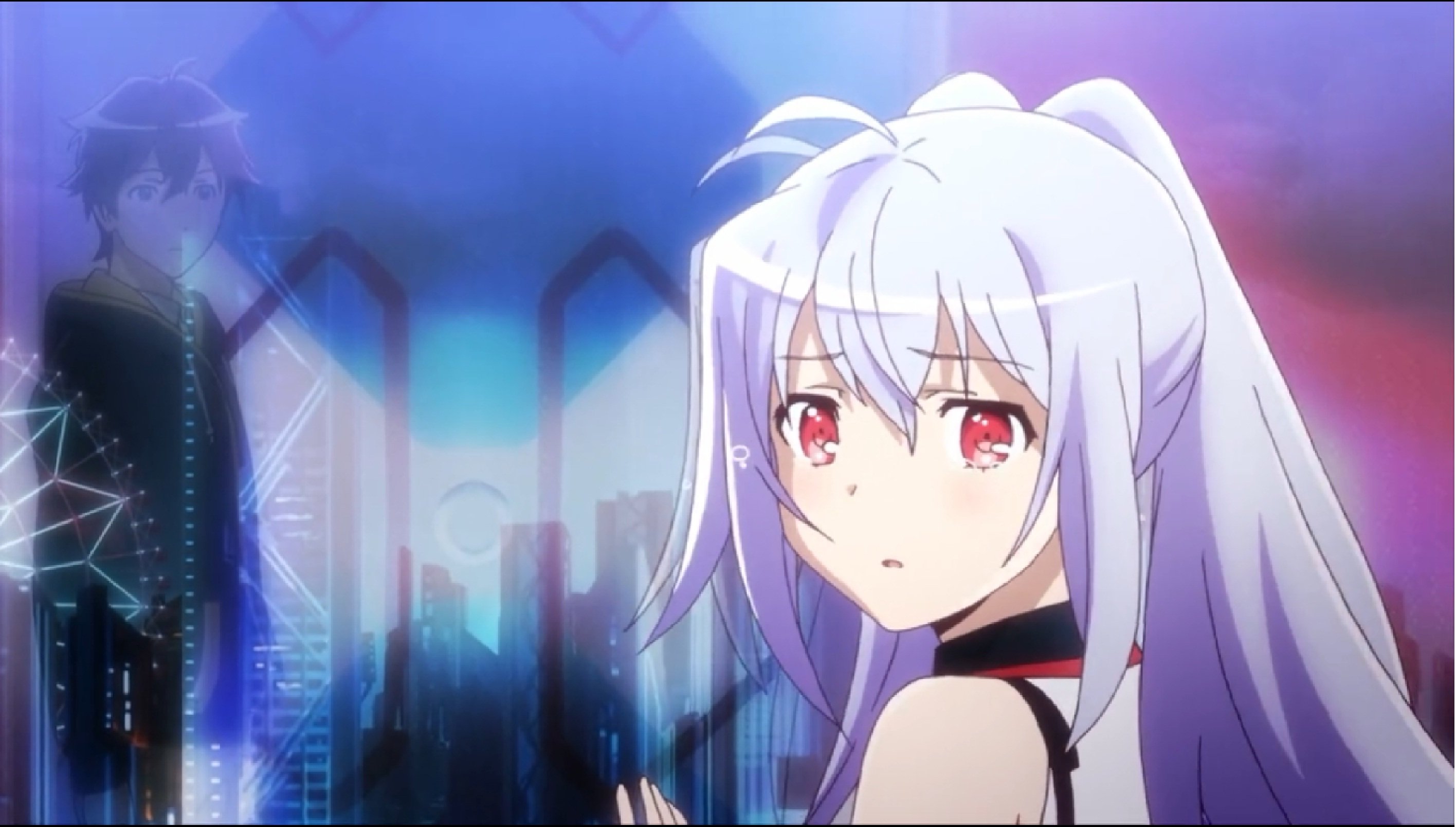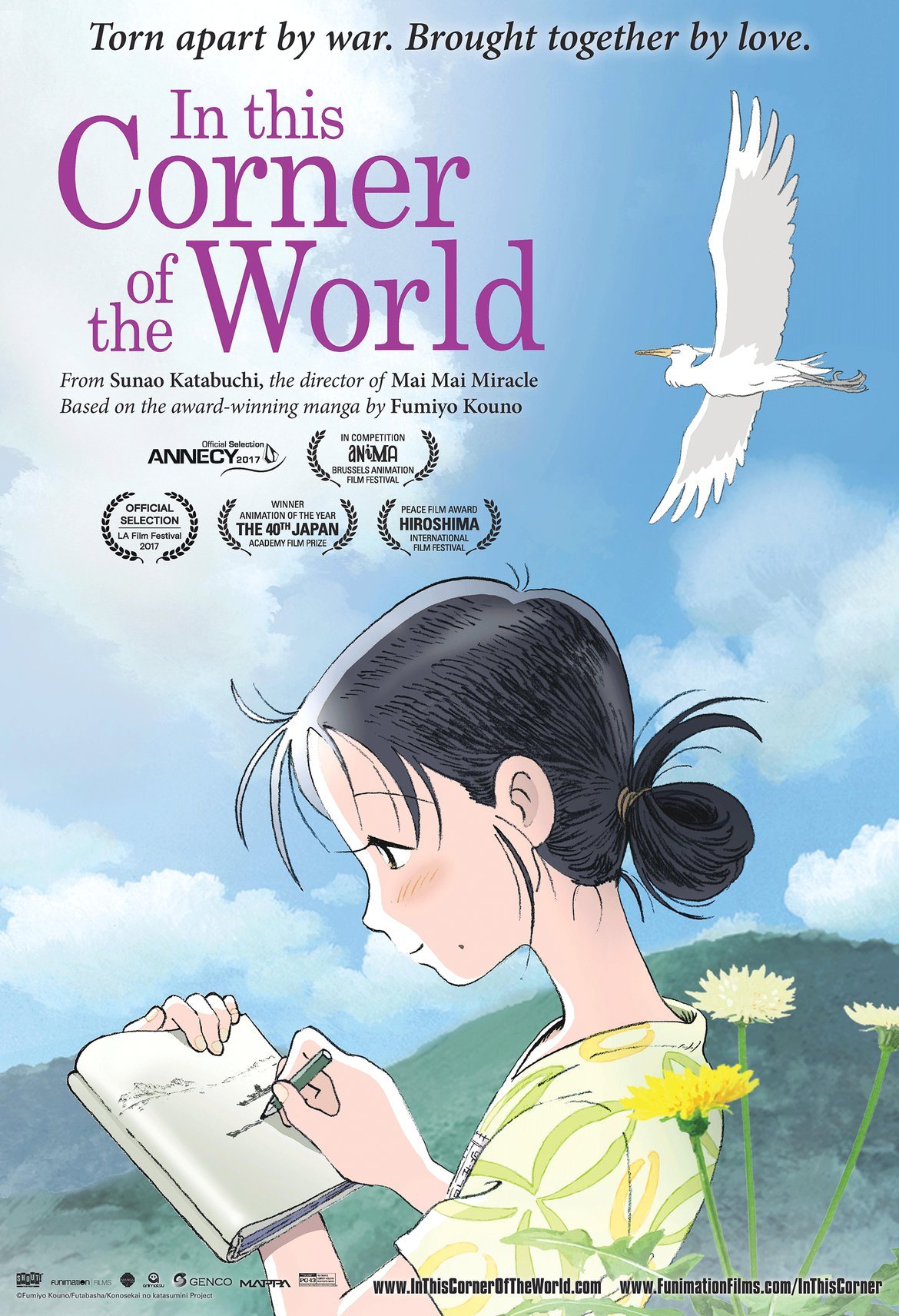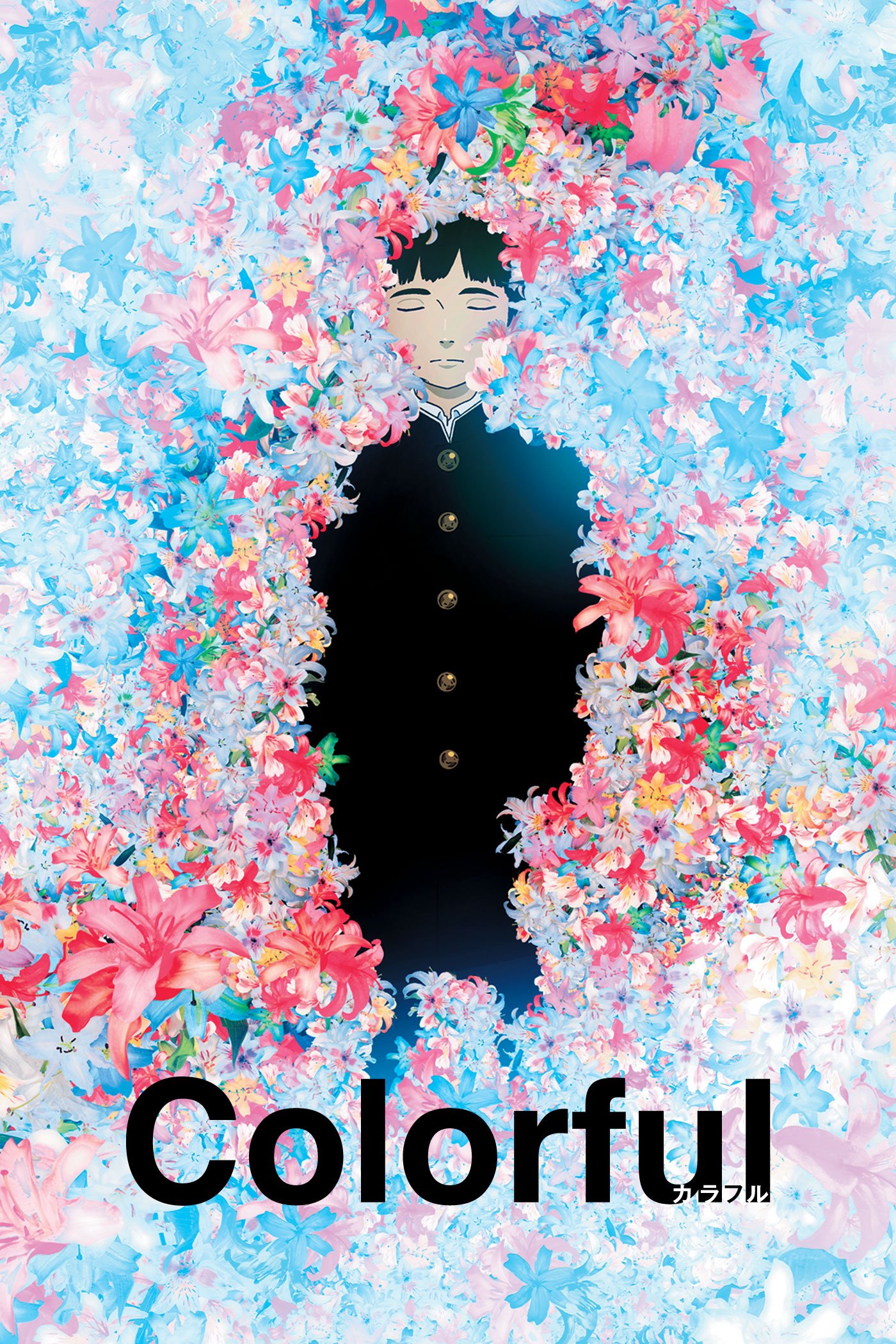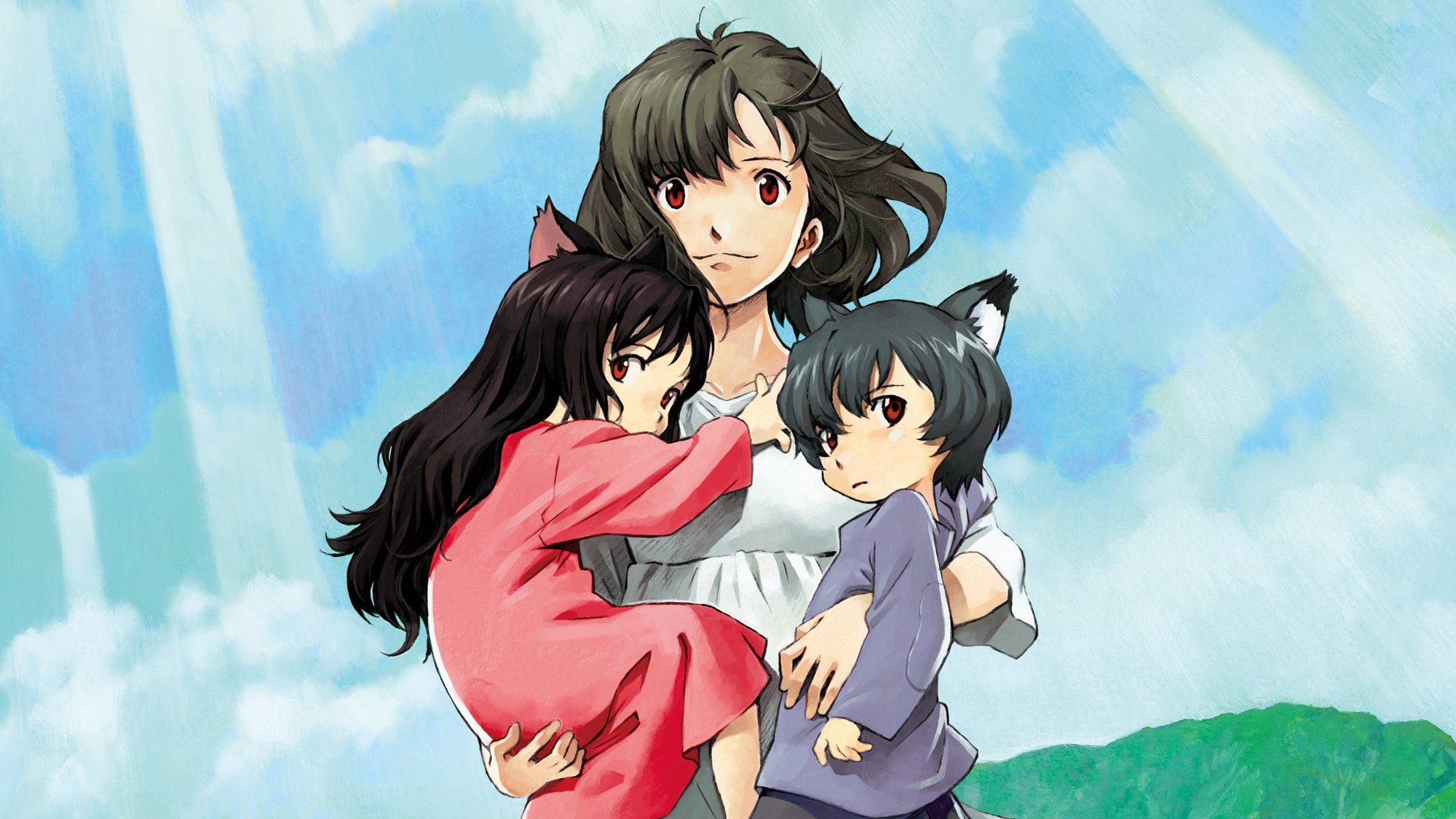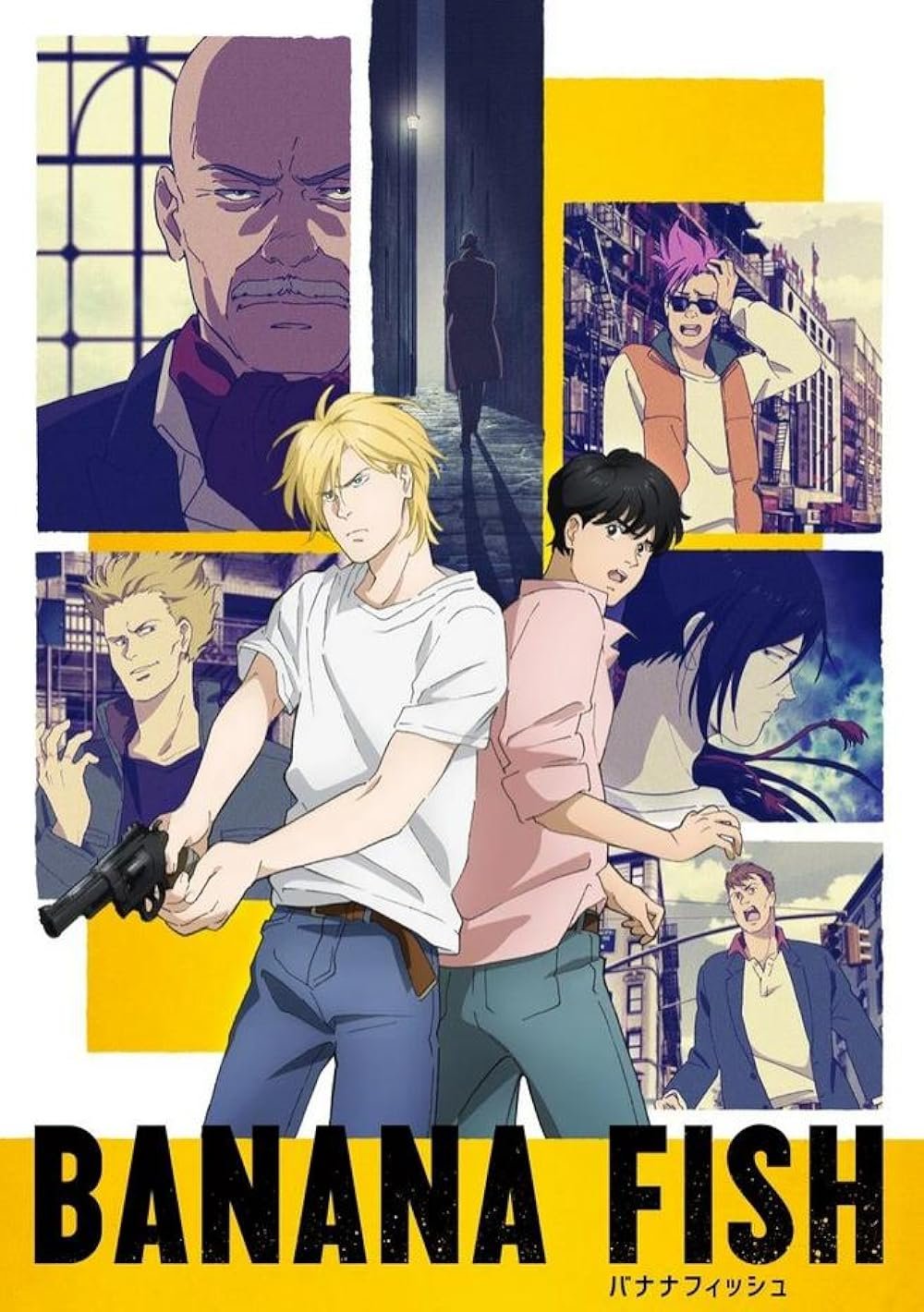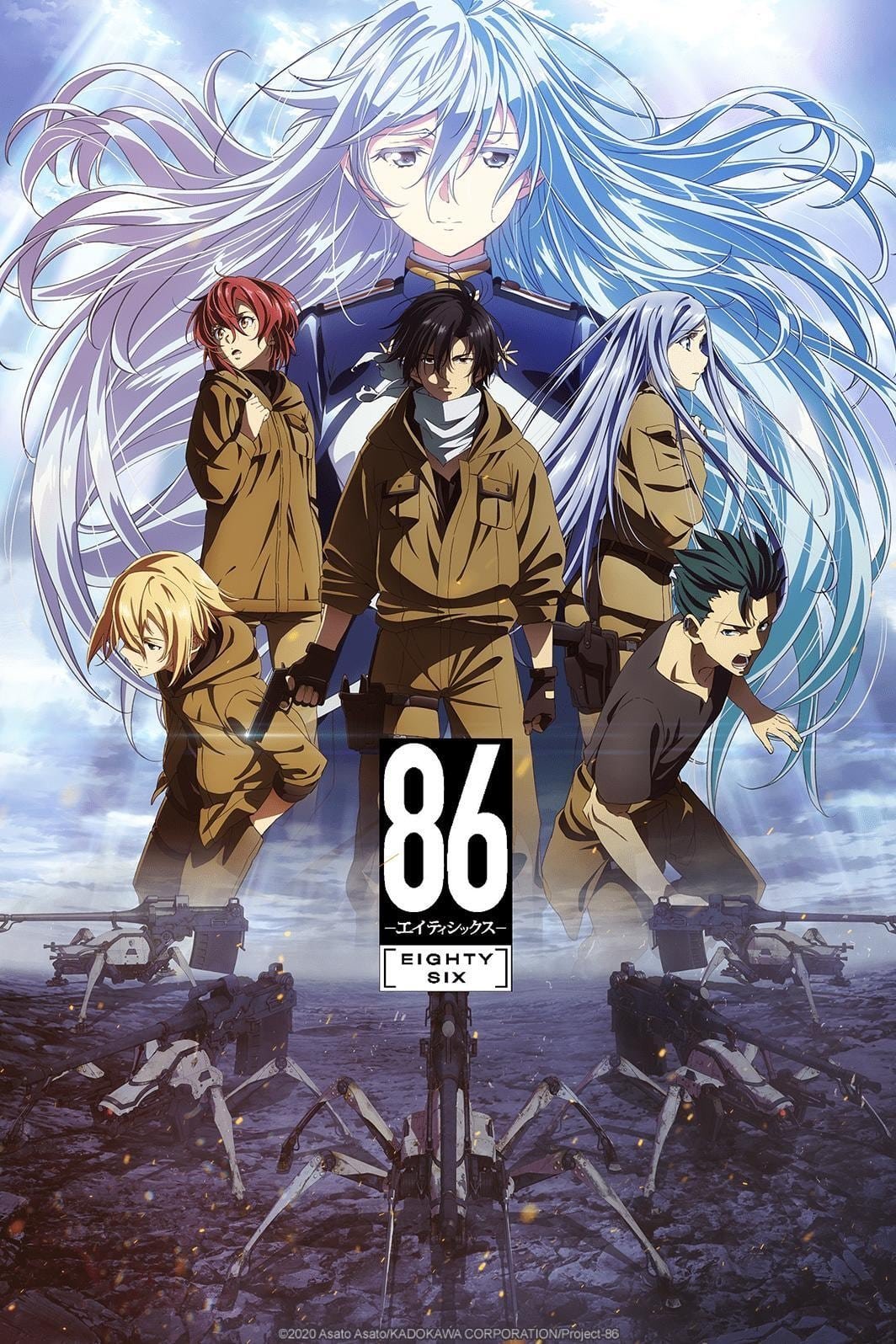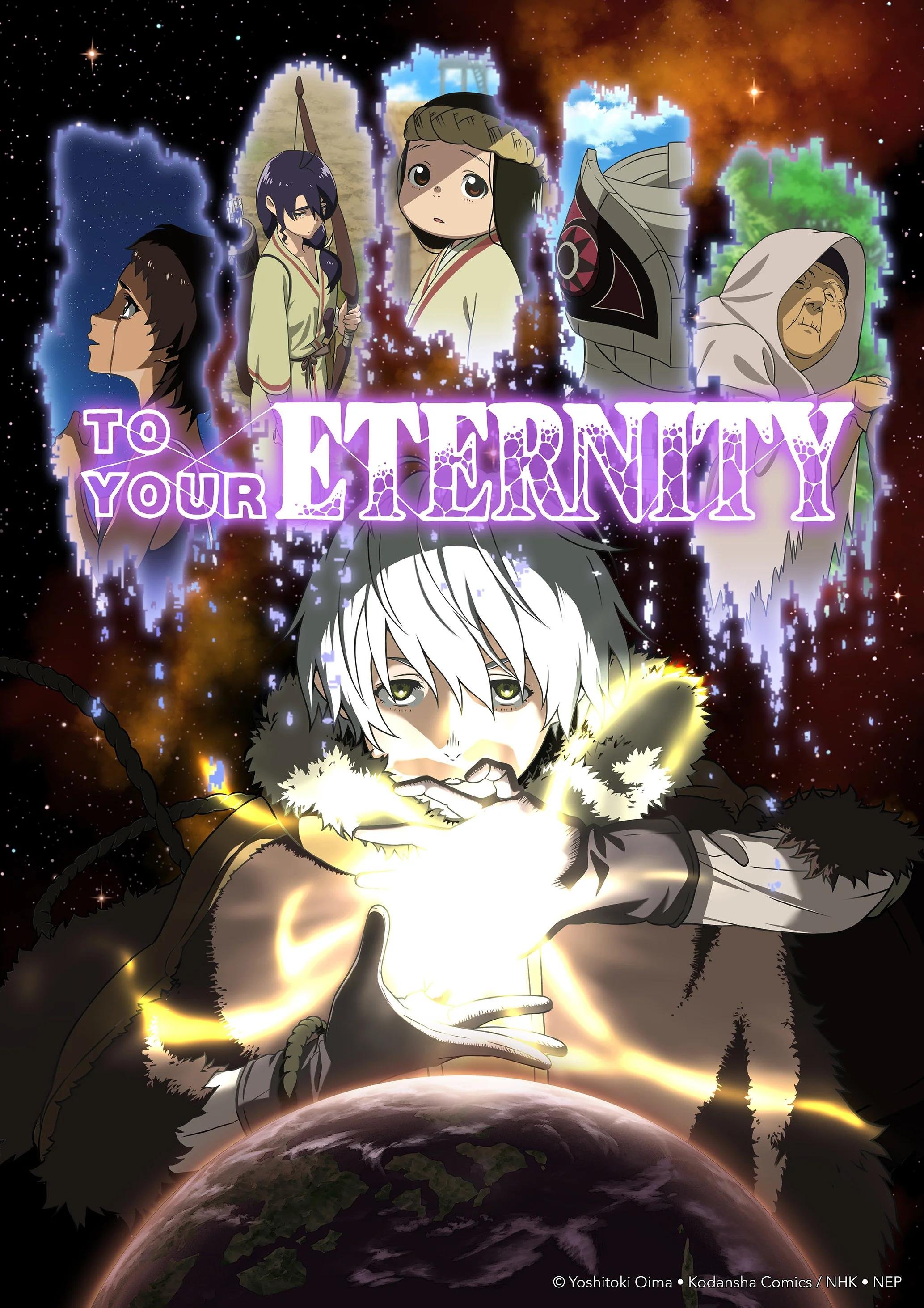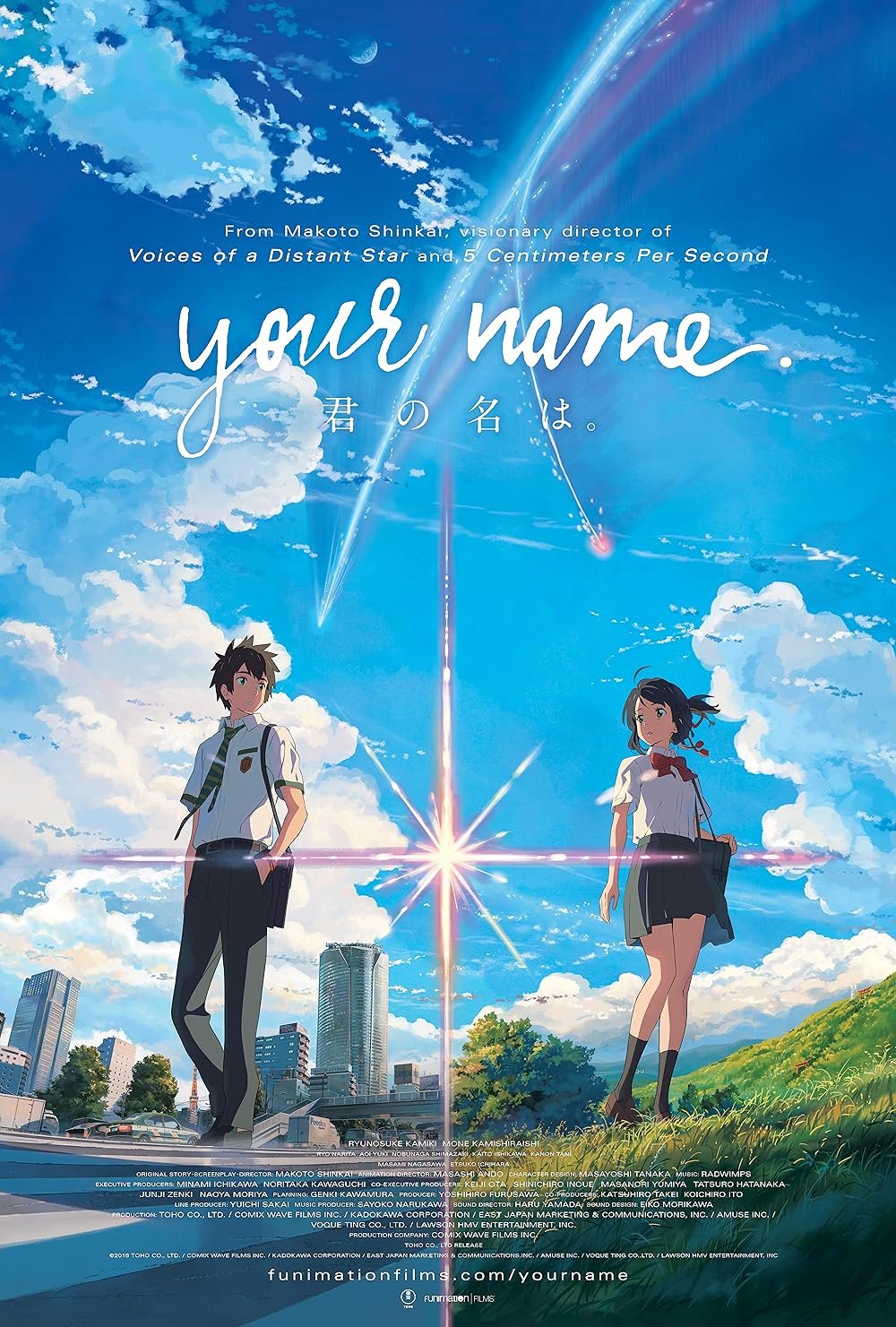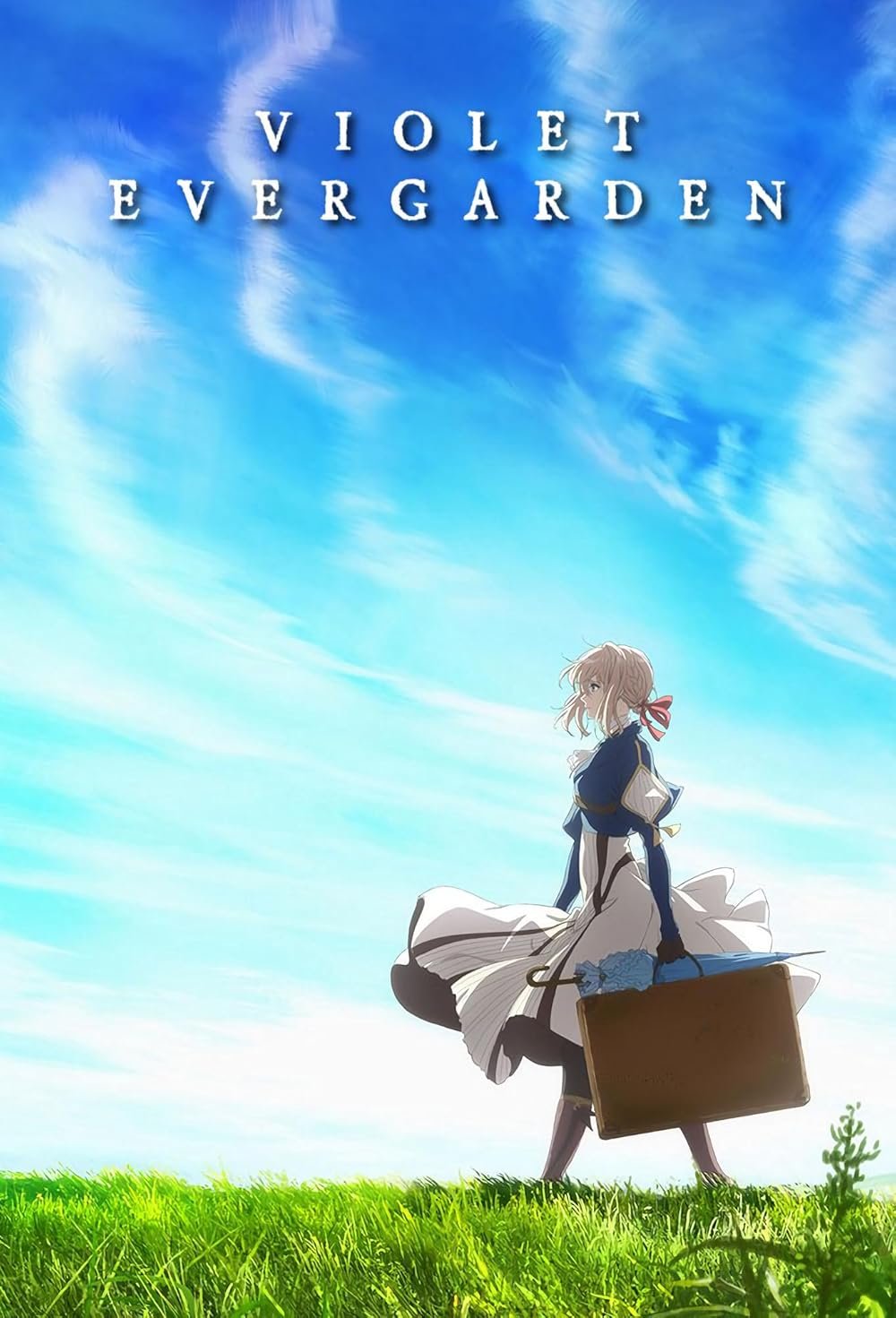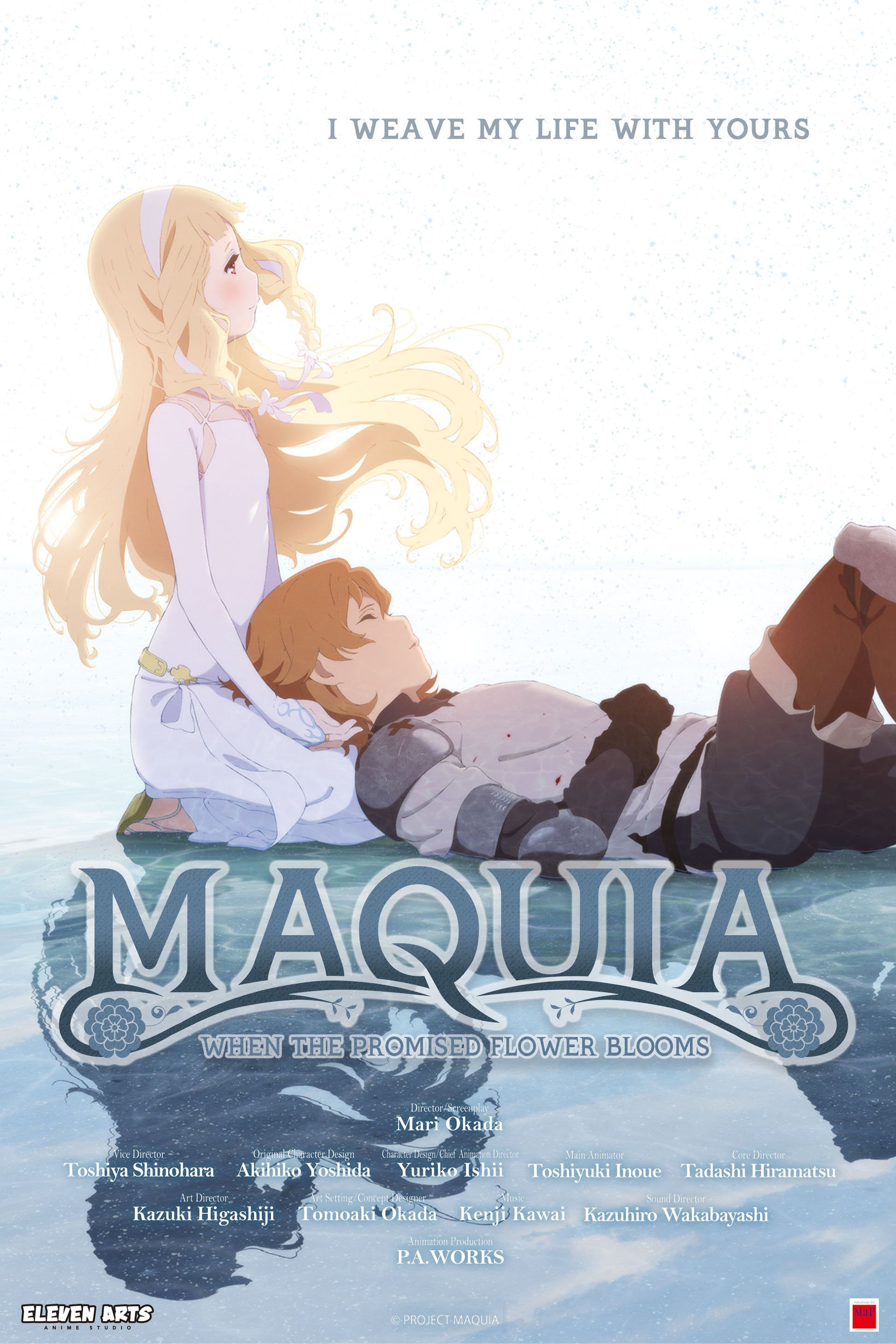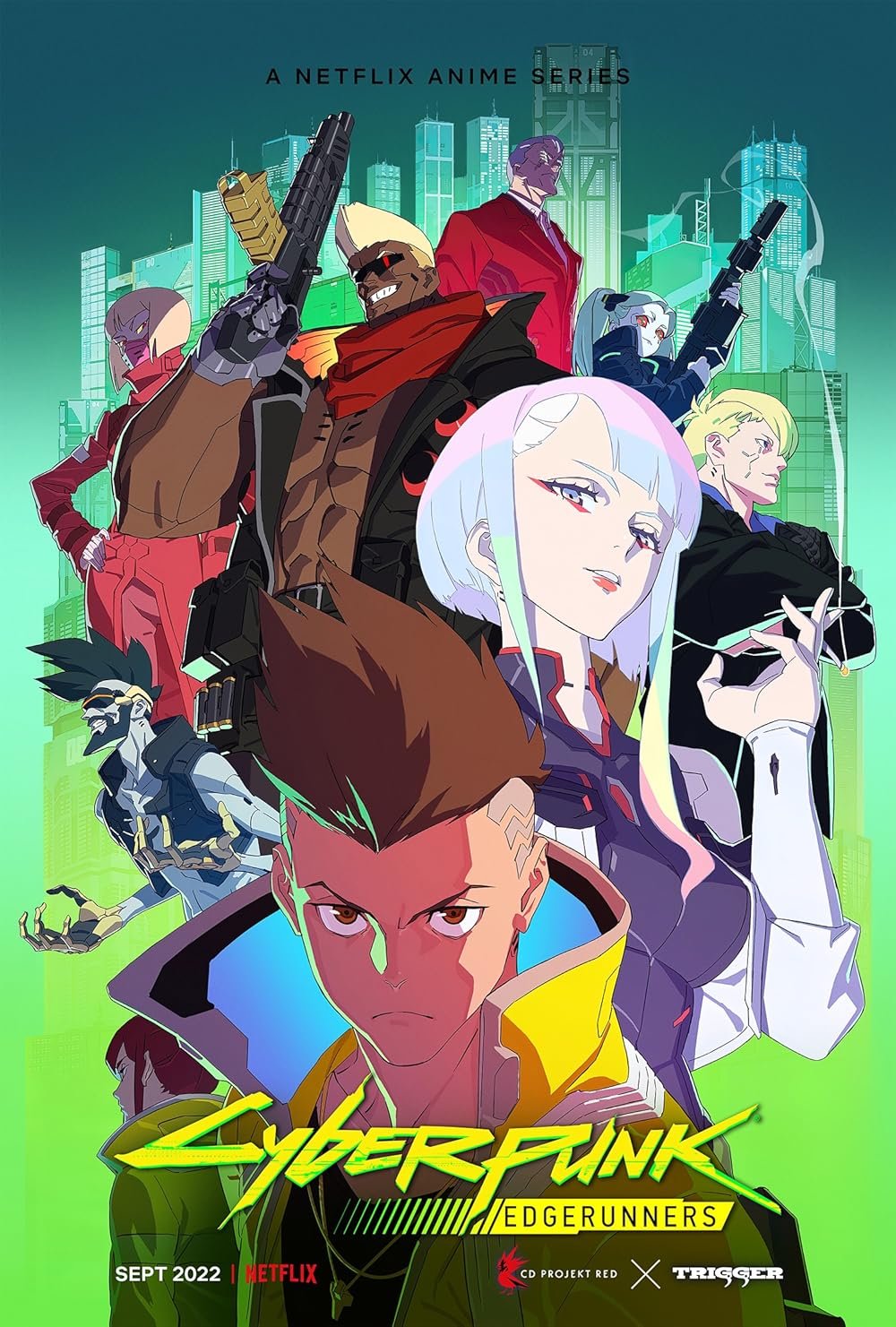The shows below are ranked from #22 to #1, moving toward the most devastating pick at the end. Each title earns its spot for how it handles love, loss and the weight of memory, with a focus on emotional impact over spectacle. Some are quiet, some are brutal, but all linger long after the credits. Reader discretion is wise, since many touch on illness, war and grief.
I avoid plot twists when possible, but some context matters. The aim is to explain what makes each entry hit so hard without numbing the details. If you are new to these, consider bookmarking and returning later, because several build their power through surprise and patient storytelling. Pace yourself.
22. Rascal Does Not Dream of a Dreaming Girl
This feature-length chapter centers on Sakuta, Mai and Shoko and the tangle of timelines and illness that threaten them. What hurts most is how ordinary kindness collides with impossible choices. Growing up is shown as accepting that even good options can cause pain.
The film looks gentle, but its mood is heavy. Conversations feel small and real, which makes the later turns land harder. Sakuta’s blunt honesty and Mai’s steady support give the story a fragile warmth that keeps the tragedy from feeling empty. The result is a quiet study of sacrifice.
Rather than chase shock, it stays with the fallout, letting guilt and hope share the same frame. That balance is why it sits on this list. It aches because it believes love has costs and then shows them with clarity.
21. Tokyo Magnitude 8.0
Two siblings, Mirai and Yuki, are caught in a massive quake and must cross a broken city with help from Mari, a delivery worker. The show treats disaster with sobering realism, focusing on basic needs and the strain of uncertainty. Small acts become lifelines.
It avoids sensational set pieces and sits with the waiting, the long walks and the constant worry for family. This grounded approach turns simple scenes into teeth-grinding tension. The emotional payoff works because grief arrives the way it often does in life, without warning.
Mirai’s growth is painful and honest. She learns how fear can turn into harsh words, then into regret. The city’s ruins aren’t just a backdrop; they mirror how brittle people feel when the future is unclear. Hope persists, but it never cancels the loss.
By the end, the show leaves you with a respect for the quiet heroes of a crisis and a lump in your throat. Its sadness is earned through patient observation, not melodrama.
20. 5 Centimeters per Second
Makoto Shinkai’s triptych follows two classmates who drift apart as time and distance pile up. The film treats missed trains, postponed letters and silent phone screens as large events and they are, because they cut into ordinary life. Longing is the point.
Each chapter moves further from childhood certainty. Snow, night trains and the glow of screens become markers of who the characters were and who they can no longer be. The pain here is not sudden loss but years of slow, unnoticed separation.
The final montage stings because it withholds the neat reunion many expect. It suggests that some connections shape us and then fade, leaving a quiet echo. That gentle honesty is why the film still feels so personal. Not every story loops back.
The pacing is deliberate, the dialogue sparse and the images do most of the work. It’s a reminder that the saddest endings are sometimes the ones that never quite happen, only almost.
Few films capture the ache of timing like this. It is soft-spoken but relentless in how it shows love slipping through everyday cracks, one missed moment at a time.
19. Hotarubi no Mori e
A girl named Hotaru befriends Gin, a spirit who will vanish if touched by a human. Their summers together are light and tender, which makes the rule feel crueler with each year. The story builds a tight knot of yearning around a single boundary. One touch would mean goodbye.
The film is short, but it lingers. The forest feels safe and borrowed at the same time and the festival sequence turns from joy to dread in a blink. It hurts because the characters do nothing wrong; they simply live inside a rule they cannot change, which is a very human kind of sadness.
By choosing restraint over melodrama, it becomes more powerful. You leave with gratitude for what they shared and anger at how brief it had to be. The final scene is simple, devastating and inevitable and it will stay with you.
18. Plastic Memories
In a near future, human-like androids called Giftia have short lifespans. A retrieval team collects them before breakdown. Tsukasa and Isla’s partnership makes a case for loving even when a timer is already ticking. Knowing the end is coming changes every small moment.
The show’s best episodes focus on one-off retrievals, treating each goodbye with care. These side stories lift the main romance, because we understand the system’s weight long before it lands on the leads. The office humor never hides the central truth: attachments form anyway and they hurt.
What makes it sting is how practical everyone tries to be. Rules exist, schedules exist and still people break down in doorways and parking lots. The series argues that love is worth it, even if you only get a slice. That is a tough, grown conclusion.
The last stretch stares at acceptance, not fixes. It chooses honest closure over tricks and earns its tears through ordinary gestures.
17. In This Corner of the World
Suzu marries into a family near Hiroshima during wartime. The film tracks food lines, air raids and the rhythm of chores. It treats daily life with care, which makes the losses feel close and personal. Small details do the heavy lifting.
Suzu’s drawings and daydreams add light to a dark setting. That contrast is key: the more you see her gentleness, the more you fear for it. The film never stops being humane, even when it depicts the worst days.
It refuses easy comfort. Healing is slow and community matters, but it cannot replace what is gone. The sadness here comes from broken routines and empty seats at the table, the kind of harm that lasts. This is war shown through the lens of home.
The final note offers endurance, not triumph. It trusts the audience to hold grief and grace at once, which is why it leaves a deep, quiet ache.
Few works depict survival with such warmth and restraint. Its power comes from respect for ordinary people.
16. Colorful
A lost soul wins a second chance at life by inhabiting a boy’s body and untangling what led to his death. The film looks directly at bullying, family strain and shame. It is not tidy, which is why it feels true. Second chances still carry scars.
Rather than preach, it observes. The boy’s mother, classmates and the soul’s guide are seen without easy labels. The sadness comes from how long people sit with secrets and how silence can become a burden heavier than blame.
When clarity arrives, it is not a magic fix. The film points to small choices and daily effort as the way forward. That modesty makes the final beats land. It believes in change while admitting how hard it is, which leaves a tender, earned sorrow.
15. Wolf Children
After losing her partner, Hana raises two kids who can shift between wolf and human. It is a story about single parenthood first and fantasy second. The hardest scenes are simple: sick days, money troubles and decisions no one can make for you. The love here is stubborn. Motherhood is the core.
Moving to the countryside gives the film room to breathe. Neighbors help, the seasons roll and both kids test where they belong. Watching Hana encourage them, even when it might pull them away from her, is where the ache lives. Letting go is a skill.
The ending is bittersweet because it honors different paths. The family is not broken, just changed. That gentle framing makes the tears come from pride as much as pain. It respects the grind of care and the cost of freedom.
Also Read
10 phrases that sound supportive but are actually a subtle sign of manipulation
The film’s warmth never slips into fantasy comfort. It knows that real love keeps going after the credits and that truth is quietly devastating.
14. Banana Fish
Set in New York, this crime drama follows Ash Lynx, a young gang leader and Eiji Okumura, a visiting assistant, as they uncover a conspiracy linked to a drug called Banana Fish. The violence is sharp, but what breaks you is the fragile space they build together inside a brutal world. Their bond becomes a lifeline. Trust is the rarest currency here.
The show stares at trauma without flinching. It lets scars shape choices without defining the characters entirely. Ash’s competence makes him seem unbreakable, which makes his quiet moments with Eiji all the more moving. The contrast is the point.
Tragedy feels inevitable, not because fate demands it, but because power does. Institutions push back hard and tenderness becomes an act of defiance. The cost of that defiance is the series’ sadness.
Also Read
10 Phrases That Sound Supportive But Are Actually a Subtle Sign of Manipulation
By the end, Banana Fish leaves you with a love story told in sideways glances and brief rests between danger. It is harsh and then, for a minute, gentle and that is why it lingers.
The final images are quiet and that quiet hits harder than another shootout ever could. It closes with restraint.
13. 86 Eighty-Six
In a nation that denies its war dead, a segregated group called the Eighty-Six fights and dies outside the official count. Handler Lena reaches them through a remote link, while Shin leads on the front. The premise turns statistics into faces. Erasure is the enemy.
Radio chatter becomes the heart of the show. Voices build trust across distance, which makes each loss feel close. The series examines how people cope when they are treated as expendable and how dignity survives under systems built to ignore it.
Also Read
People With Low Emotional Intelligence Often Miss These 6 Social Cues
When hope appears, it is cautious and partial. Small victories matter because they are rare and the story remembers who paid for them. It carries grief forward rather than leaving it behind and that honesty fuels its impact.
12. To Your Eternity
An immortal entity named Fushi learns what it means to be human by forming bonds and losing them. The series repeats a cycle of connection and farewell, each time cutting deeper because Fushi remembers. The sadness is baked into the premise: growth is bought with goodbyes. Memory hurts.
Characters arrive fully alive, which makes their exits feel unfair. The show does not treat them as lessons; it lets them laugh, fail and matter. That care turns later episodes into a test of how much the audience can carry alongside Fushi.
The power here is patient. It shows how pain can teach empathy without claiming it is worth it. Fushi keeps going because he must and we watch him turn survival into something like living. The effect is heavy and human.
Also Read
8 Weird Habits You Don’t Realize You Have From Growing Up In A “We Can’t Afford It” Household
Even when arcs end in hope, the cost remains. It is a series about what stays with us after we lose what we love and that weight never fully lifts. That is its truth.
11. Your Name
Two teens, Taki and Mitsuha, swap bodies and leave notes to manage each other’s lives. What starts as a playful setup turns into a race against time. The film ties romance to fate and asks what it means to find someone you cannot remember. Connection itself becomes a mystery.
The middle stretch blooms with humor and daily detail, which makes the later urgency sting. The soundtrack and montage work pull viewers into a shared heartbeat, then break it with a single reveal. The tears come from hope colliding with distance.
The ending offers a chance rather than a certainty. That restraint feels honest and makes the final moments hum with nervous joy and leftover grief. The film believes that finding each other matters, even if the path is fragile.
Also Read
10 Phrases That Sound Supportive But Are Actually A Subtle Sign Of Manipulation
It remains a crowd favorite because it balances spectacle with simple, direct feelings. The scale is big, but the sadness is intimate.
Names fade. Feelings don’t.
10. Violet Evergarden
Violet, a former child soldier, writes letters for others while trying to grasp what “I love you” means. Each client’s story becomes a mirror for her own numbness and slow thaw. The show turns empathy into a craft. Words are the bridge.
The most painful episodes are the quiet commissions: a mother planning for a future she will not see, a playwright stuck in loss, a girl waiting on mail that will never come. Violet learns to sit with other people’s grief without solving it, which is its own kind of courage.
Animation polish helps, but the impact comes from restraint. Violet’s growth is not a single breakthrough; it is a stack of small moments where she chooses to care. That steady change makes the final reunions and partings feel earned.
Also Read
8 Cringey Phrases Older Relatives Use at Family Dinners That Younger Guests Dread
9. Maquia: When the Promised Flower Blooms
Maquia belongs to a long-lived people, yet she raises a human boy she finds as an infant. Time becomes the enemy, not a villain. The film captures the raw edges of caregiving, from sleepless nights to the day your child no longer needs you. The love is fierce. Letting go is the test.
Fantasy trappings frame a very grounded story. Politics swirl, empires rise and fall and Maquia keeps choosing her son. The sadness grows as their clocks drift apart, turning simple milestones into reminders that she will outlast him.
What makes it brutal is how often joy and sorrow share the same scene. A birthday can be a wound. A hug can mark distance. The film refuses neat answers and respects the costs of parenthood.
The ending is one of the medium’s great gut punches because it is honest about time. It leaves you grateful and hollow at once, which is a tough, human mix.
